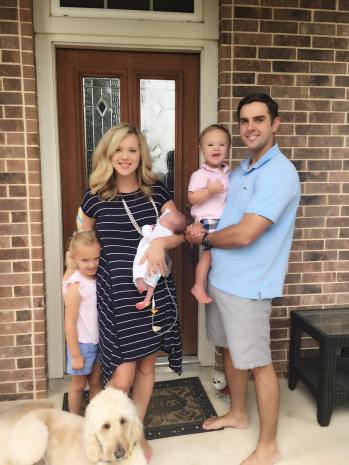Since the reauthorization of the Higher Education Act a decade ago, more than 260 college programs have been created for students with ID. But only the minority of these programs include a 4-year, all inclusive program for students with ID. The College of Charleston’s REACH program is one of them.

Read Related Post: InclusiveU: What College Should Look Like for Students with Intellectual Disabilities
“I love it here. I am treated like a person, not like a disability. My classes are hard but I get all the help I need. I have lots of friends who don’t care about my disability, we don’t really talk about it,” explains a students with Down syndrome attending the REACH program.
The REACH program models a typical college experience. Students take regular classes and live on campus. The 4-year program started in 2009 with a grant from the College Transition Connection program, and has four areas of focus: academics, social, independent living, and career development.
Program Executive Director, Edie Cusack, says student success in the program often requires training parents and professors to change their mindset. “There’s an acceptance process for parents too. We’re really looking for them to let go. We often get parents at orientation who say ‘maybe that student can do it, but my child cannot.’ By the end of the program they’re proven wrong.”
“We also conduct specific inclusion training with professors, who often have no background in teaching techniques for students with intellectual disabilities. We promote UDL, scaffolding instruction, and stress high expectations that academic learning will take place,” explains Cusack.
Read Related Post: College Scholarships for Students with Down Syndrome
REACH boasts a 93% post-program employment rate, and a 75% independent living rate. Cusack says students spend the last six months of the program finding employment and independent living supports. Students must also complete an internship in a career field of their choice.
“I believe in the dignity of risk. Stopping people with disabilities from taking risks and making mistakes is stopping them from living a full life. A cool side effect of the program is the idea of disability is shifting. No one turns and looks and stares when our students with Down syndrome goes into cafeteria. In fact we have a student with Down syndrome currently who has been entered into the lottery to dorm with typical students because she’s on-par for living skills,” Cusack says.
There are no national standards or accreditation process that post-secondary programs must follow to serve students with ID. Think College works as a clearing house for more than 260 college programs, and is working with the federal government to develop standards. You can learn about other college programs here.
A bill was just released to the House of Representatives to reauthorize the 2008 Higher Education Act last week. Some worry that gains that have been made under the 2008 version, could be lost in the current bill that calls for deregulation. You can read the bill here.
You can find out about the College of Charleston’s REACH program here. Is your loved one with Down syndrome going to college? What other post-secondary programs have you learned about that serve students with ID? Share what you know below.













 Students with Down syndrome would be a target group for this program. In fact, National Down Syndrome Congress Education Policy Advisor, Ricki Sabia, was chosen to be the parent advisor and liaison for the TIES Center.
Students with Down syndrome would be a target group for this program. In fact, National Down Syndrome Congress Education Policy Advisor, Ricki Sabia, was chosen to be the parent advisor and liaison for the TIES Center.